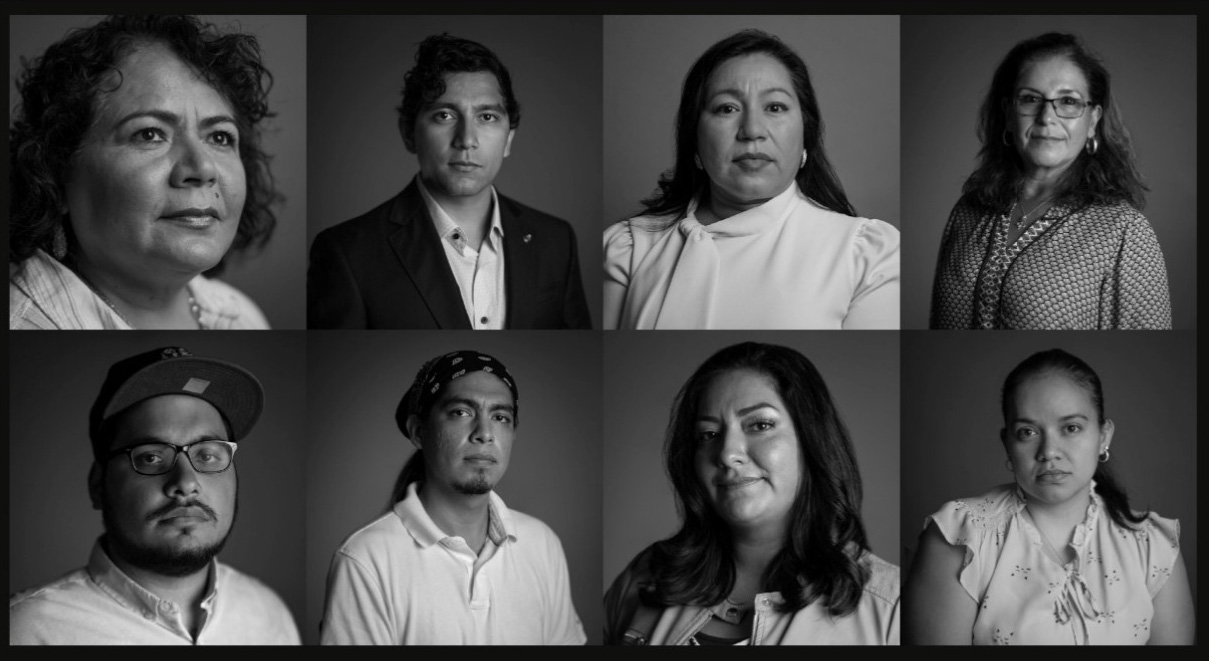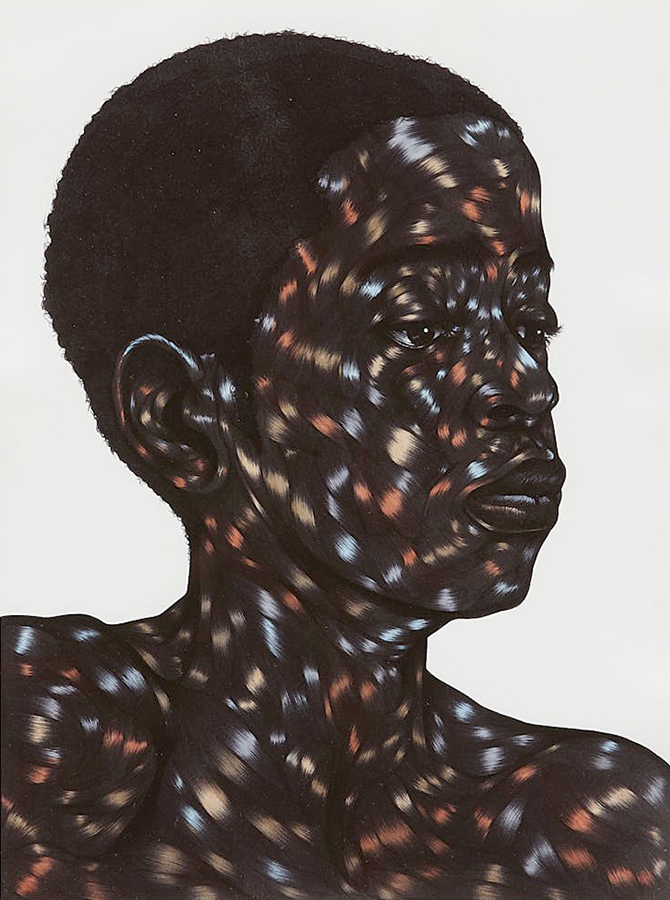When asked what inspires her work, fiction writer Lee Smith answered by quoting another Southern author, Flannery O’Connor: It’s “a habit of being.”
“If you’re writing,” Smith said, “you’re always living your life in a very attentive manner, because you have to.”
She has been paying attention since she was a child. She grew up deeply religious in the mountains of Virginia, surrounded by a “very rich Appalachian voice,” with a family full of great talkers, she said. She often fell asleep to the sound of people telling stories or playing music, and she put as many tales down on paper as she could, writing her first novel of sorts -- on her mother’s stationery -- at age 8.
Today, she’s the author of nearly a dozen novels and four collections of short stories. Among those are “Oral History” and “Fair and Tender Ladies,” both of which won North Carolina’s Sir Walter Raleigh Award for Fiction, and “The Last Girls,” a New York Times best-seller and Southern Book Critics Circle Award winner. Other awards include the Robert Penn Warren Prize for Fiction and the O. Henry Award. Her latest collection of short stories, “Mrs. Darcy and the Blue-Eyed Stranger,” was published by Algonquin Books in 2010.
A retired North Carolina State University English professor, Smith lives in Hillsborough, N.C., and occasionally still teaches writing workshops.
She spoke with Faith & Leadership about how her early experiences influenced her writing, how to pass down the tradition of storytelling, and why it’s important for teachers to create safe places. The following is an edited transcript.
Q: Where did you learn about the tradition of storytelling?
I was born into it. I think that the kind of writer you will be is to some degree determined by how you first hear language and who is speaking to you and what language they’re using, what kind of voice and intonation and so on.
For me, it was this very rich Appalachian voice and a dialect of people a generation or two older than me. Because I was a late-in-life child to my parents and I was an only child, I was often in the company of grown-ups who were much older -- my grandparents and their generation, and my aunts and uncles -- and they all talked a certain way.
Even the simple facts they translated into anecdotes were a riot. A lot of the men were in politics and running for office, and they were great talkers. That’s what I grew up on. I’d be lying in somebody’s lap while they were all telling me stories and talking and carrying on and betting on things and playing some music -- and that’s what I would hear as I went to sleep. I’m a long time away from that kind of time and place, but a story does come to me in a human voice, and that’s why I most often have first-person narrators -- like I’m taking dictation.
Q: I read that you experienced the voice of God speaking to you when you were a child. How do you regard that experience now?
I grew up in the mountains, and my best friend went to a church where her mother spoke in tongues. I would sit with her in church, and her mother would speak in tongues and then pass out. We’d catch her and lay her down, and then we’d get her up in time for dinner. None of this seemed strange to me, and in fact, it seemed really interesting.
I was a very religious child. I was drawn to the charismatic even though we didn’t go to one of those exciting churches. We went to the Methodist church in town, which is very foreign compared to those other churches. I got very involved with this friend and going to [the charismatic] church with her.
At a certain point, my parents sent me off to camp for two months, trying to break up my friendship with this girl, because it was embarrassing to [my mother]. But when I was at camp, I was still really religious and reading this little Bible where Jesus speaks in red print. The camp held vespers outdoors, and it was beautiful.
But one Sunday I didn’t go to church because I had bronchitis. I stayed in the big tents with doors, and I was the only one in it while everybody else was up the hill in the big church building. It was open, and I could hear them singing hymns. All of a sudden, I heard this voice call my name. I really did, and I will swear it to this day. It was very definitive. I was so impressed that I went running up there to tell them that.
Everybody decided I was sick and put me in the infirmary. They called my mother. My mother said on the phone, “Lee, if you will shut up about hearing God’s voice, we will buy you a dog when you get home.” So I decided to not talk about it, but I always believed it. I believe it to this day.
Q: How does this influence your work as a writer?
The practice of writing itself is a way of staying in touch with the deeper, more meaningful self and the experience of writing. When you’re just flat-out writing, it’s very much like prayer. You’re totally out of yourself, and you come back to yourself with this sort of feeling that you don’t get from anything else, except for writing and prayer.
Q: Where do you draw inspiration from?
I’ve been writing seriously since I was about 20, and I think at this point in my life -- I’m 66 -- it has become a habit. I like to use Flannery O’Connor’s phrase “a habit of being”; if you’re writing, then you’re always living your life in a very attentive manner, because you have to.
After a certain point, if you’re a writer who’s going to write for your whole life, you will use up your own actual life and [become] dependent upon the offerings of the world for material. And believe me, it’s there.
We have to pay attention. It’s a lifetime of paying attention and of listening and looking and seeing images and hearing stories and noticing things. What it’s about is life. For me, it’s a way of enriching our own real lives, to be actually paying attention. This makes the world a much more interesting place.
Q: You graduated from Hollins College [now Hollins University] in 1967. How did your experience there inspire you to be a writer?
I have to say I did not choose Hollins College because it offered creative writing, even though it was one of only a handful of colleges in the country that offered courses in creative writing in 1963. I went there, frankly, because I was an only child, and I worshipped this 10-years-older-than-me cousin that had gone to Hollins.
It so happened that the college had just attracted [Algonquin Books founder] Louis D. Rubin Jr., who started the college’s creative writing program. It turns out that I couldn’t have picked a better place for me. The faculty was there because they were extraordinary, and the other girls that I fell in among were amazing. My suitemate was [Pulitzer Prize-winning author] Annie Dillard.
There was sort of a synchronicity about it all, and a real community sprang up. We were all in the same creative writing classes for four years. Starting off with Louis, we had different visiting writers. He had Eudora Welty come. It was amazing, and we were all kind of eaten up with it. It was fun.
The other thing about Hollins was that there was a great spirit of play in the creative writing department. The second person in command there was Richard Dillard, and he was this great, antic figure, and he was brilliant, brilliant, brilliant. It was OK to try anything and to fall flat on your face. We were always doing easy kinds of theatricals, and anything you did was just really OK.
Initially, I almost felt that I had to hide how interested I was in reading and writing, because it didn’t seem normal. It was like I had this secret self, and the minute I fell in with all these other girls and into this place, I could just come out and be myself. A number of those girls felt that same way.
So it was a wonderful place to go to school. I think I would be a different woman entirely had I gone to a regular coed university, because I don’t think I was secure enough to take risks like that in front of boys. The single-sex education thing was very empowering for me. I could never have planned that. So many of the girls that I was in school with have written books and have been poets, writers, editors and teachers of all kinds, and still are.
Q: What kind of teacher are you now? Do you teach writing in the same way?
I do try to. Another thing I try to do when I encounter a number of students whose work really deserves support is to keep up with them and to write them recommendations for graduate school or scholarships, and to read their work as they go on beyond the classroom. I think this kind of thing is a real commitment, and my teachers did the same for me. I think in a way it’s just passing [the craft of writing and teaching] on.
Just in the state of North Carolina, there seem to be so many writers because so many writers have been teachers and passed it on. Like with me: Louis Rubin was my teacher, and then I was [novelist and short story writer] Jill McCorkle’s teacher, and then Jill McCorkle was [young adult fiction writer] Sarah Dessen’s teacher. There are all these little chains like that.
Q: How do your childhood experiences and your writing style parlay into how you teach? How do you use tradition and innovation to teach writing?
I do love to teach all kinds of nontraditional groups. I was just working with a group of much older ladies the other day. We were writing secrets, and that’s very risky for them. One woman wrote, “I never liked my sister.” She was stunned that she had written that, and she put her hands over her face for about 15 minutes, and then she took her hands off and said, “I never really liked my sister.” Then several others said, “Oh, I didn’t either.”
Q: It sounds a little like church with a confessional element. They’re confessing something within a safe place, like you had at Hollins.
Yes. You have to have a safe place, because if the process is too scary to you, you won’t do it. That’s one thing the teacher has got to do: to make it a safe place for everybody to open up to participate, so they can be as fanciful as they want, or as dark, or as silly, or whatever.
Q: How does your church, St. Matthew’s Episcopal in Hillsborough, embody this?
I think a lot of it has to do with [the Rev. Brooks Graebner]; he’s so open to any kind of thing. He’s interested in the arts and in the traditional aspects of worship, of course, but he has an openness to the world, and he’s interested in and cares passionately about the issues around him. He expands the meaning of the Word. I love to go to St. Matthew’s, because there is holiness there and a real belief in God.






